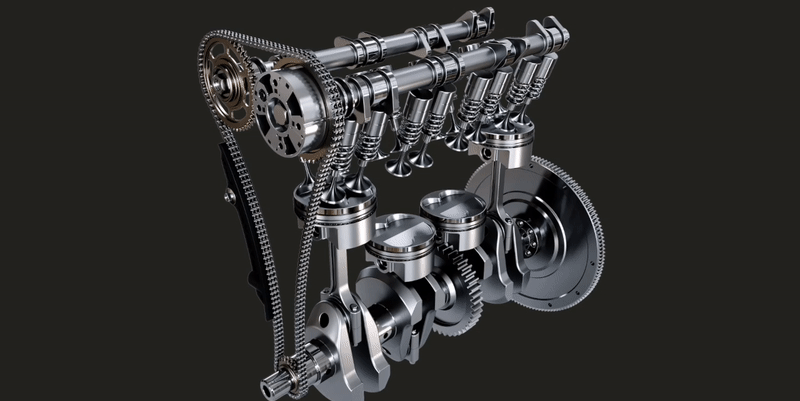Check Out a Wide Variety of Engines for every single Vehicle and Objective
The automotive landscape is significantly complicated, with a diverse variety of engine kinds made to meet specific performance and performance requirements throughout numerous automobile categories. In addition, heavy-duty engines offer the requirements of job lorries, while eco-friendly choices are obtaining grip in the quest of sustainable transport.
Kinds Of Automotive Engines
Automotive engines can be classified into a number of distinctive types, each made to fulfill particular performance and effectiveness needs. The most typical categories consist of inner combustion engines, electrical engines, and crossbreed systems.

Electric engines, on the other hand, operate on electrical power kept in batteries, offering immediate torque and zero exhausts. These engines are coming to be increasingly prominent due to advancements in battery innovation and the growing emphasis on sustainability.
Hybrid systems combine both interior combustion and electrical engines, allowing lorries to enhance gas performance and minimize exhausts by perfectly switching over in between power sources. Each engine type provides its drawbacks and advantages, influencing aspects such as lorry design, intended use, and market need. Recognizing these differences is essential for makers and customers alike when choosing the proper engine for their details demands.
Efficiency Engines for Sports Cars
Performance engines for cars are particularly crafted to provide improved speed, dexterity, and power, establishing them aside from common automotive engines. These engines typically make use of advanced technologies such as turbocharging, supercharging, and variable shutoff timing to make best use of efficiency and responsiveness.
Commonly, efficiency engines are made with greater compression proportions, which permit better energy extraction from gas. This results in remarkable horsepower and torque figures, enabling fast acceleration and greater top speeds. The lightweight materials utilized in these engines, such as aluminum and carbon fiber, contribute to minimized total automobile weight, boosting handling and maneuverability.
Engine arrangements like V6, V8, and even hybrid systems are usual in performance sports cars, each offering unique benefits in regards to power distribution and driving characteristics. The adjusting of these engines is also important; many producers enhance the engine monitoring systems to offer an exciting driving experience, often including sport settings that adjust throttle feedback and gear shifts.
Efficient Engines for Daily Commuters
In the world of day-to-day commuting, efficient engines play a critical duty in optimizing gas economic climate and lessening exhausts while giving reliable efficiency. As metropolitan populations grow and ecological issues escalate, the need for vehicles equipped with effective powertrains has risen.
Modern engines designed for everyday travelers commonly include innovations such as turbocharging, straight gas injection, and hybrid systems. Turbocharging enhances engine efficiency by forcing even more air right into the combustion chamber, enabling smaller, lighter engines that do not jeopardize power outcome. Straight fuel shot boosts gas atomization, leading to much better burning and enhanced effectiveness.
Crossbreed engines, combining internal burning with electrical power, further boost fuel economic situation, specifically in stop-and-go traffic, where conventional engines can deal with inadequacies. Electric electric motors assist throughout velocity and can run individually at low speeds, reducing overall fuel usage.
Furthermore, improvements in engine management systems and lightweight materials contribute substantially to efficient engine design. By concentrating on efficiency, sturdiness, and ecological sustainability, manufacturers remain to provide engines that not just meet the needs of everyday travelling but also straighten with worldwide efforts to reduce carbon footprints.
Heavy-Duty Engines for Work Vehicles
Sturdy engines for work vehicles are consistently crafted to supply remarkable torque and integrity under demanding conditions. These engines are created to execute in environments where conventional engines may falter, such as construction websites, logging operations, and agricultural settings. The primary emphasis of sturdy engines is their capacity to produce high degrees of power while keeping you could look here longevity over extended durations of operation.
Normally, durable engines make use of sophisticated materials and robust building and construction techniques to stand up to the roughness of hefty work. Functions such as reinforced cylinder blocks, enhanced cooling systems, and progressed gas injection technologies add to their effectiveness. These engines usually operate at reduced RPMs, which helps to maximize gas performance while providing the needed power for hauling and carrying.
In enhancement to mechanical robustness, durable engines are frequently geared up with innovative electronic control systems (ECUs) that manage performance, exhausts, and diagnostics. This integration enables for much better surveillance and maintenance, making sure that job vehicles stay reliable and functional.
Inevitably, sturdy engines are an important part in the productivity of various industries, offering the required power and integrity to deal with the most difficult of jobs.
Eco-Friendly Engine Options
The expanding emphasis on sustainability has actually resulted in the development of eco-friendly engine choices that prioritize decreased emissions and enhanced gas performance. These engines are created to minimize the ecological influence of automobiles while still supplying the efficiency and reliability expected by customers.
Among one of the most significant environmentally friendly choices are hybrid and electric engines. click to read more Crossbreed engines integrate standard interior combustion engines with electrical propulsion, permitting lowered fuel usage and reduced greenhouse gas the original source emissions. Electric engines, on the other hand, run entirely on battery power, creating zero tailpipe exhausts and adding to cleaner air top quality.
An additional encouraging development is the development of biofuel engines, which use renewable energies, such as plant products, to power automobiles (Engines For Africa). By utilizing biofuels, these engines can decrease dependence on fossil gas and lower total carbon footprints

As the automobile industry advances, environmentally friendly engine choices will play a critical function in driving the shift in the direction of more lasting transport remedies.
Final Thought
From high-performance engines that improve sports automobile capacities to efficient models prioritizing fuel economic situation for everyday commuters, each kind offers a particular feature. Sturdy engines cater to durable work automobiles, while environmentally friendly options, such as electrical and biofuel engines, promote lasting transportation.
